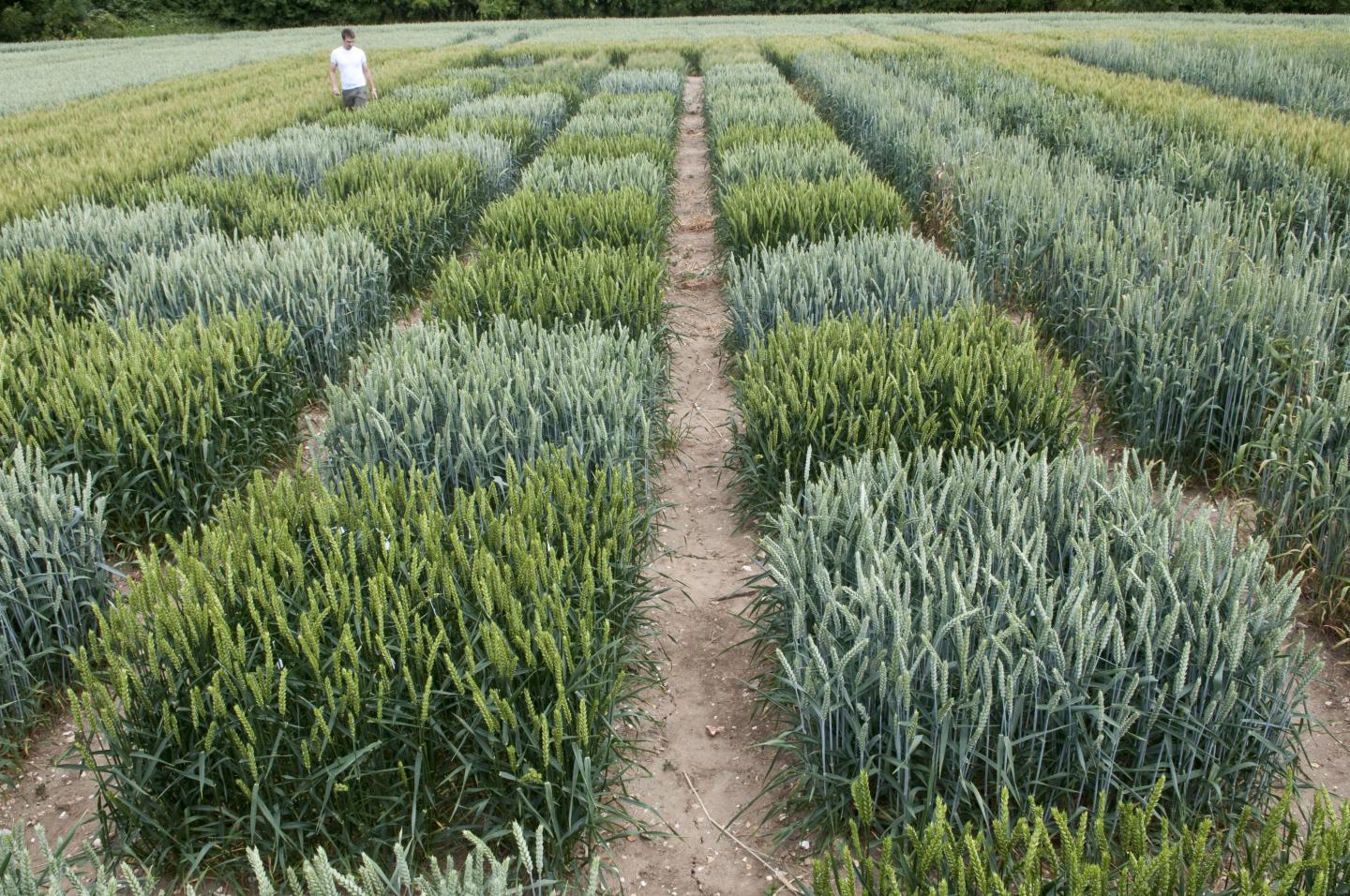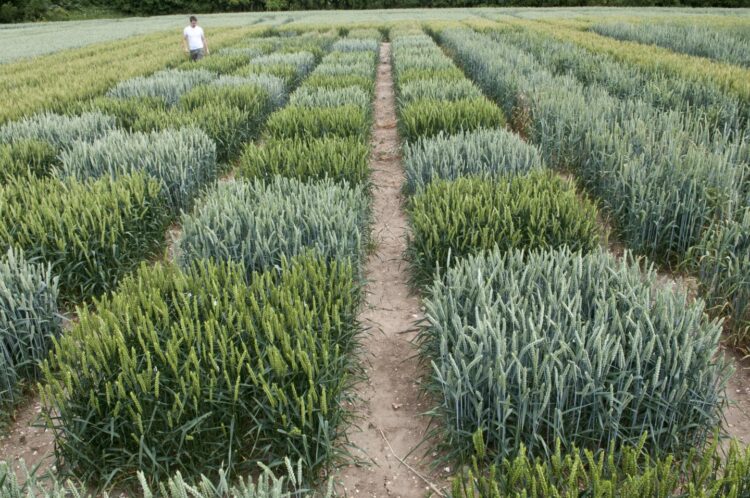
Credit: John Innes Centre
Wheat researchers at the John Innes Centre are pioneering a new technique that promises to improve gene discovery for the globally important crop.
Crop breeding involves assembling desired combinations of traits that are defined by underlying genetic variation. Part of this genetic variation often stays the same between generations, with certain genes being inherited together. These blocks of genes – very rarely broken up in genetic recombination – are called haplotype blocks. These haplotypes are the units that breeders switch and select between plants to create new crop lines.
In the new study which appears in Communications Biology John Innes Centre researchers led by the group of Professor Cristobal Uauy show that current platforms used by breeders do not provide the resolution needed to distinguish between haplotypes, potentially leading to inaccurate breeding decisions.
They defined shared haplotype-blocks across the 15 bread wheat cultivars assembled in the 10+ Wheat Genome Project a major international collaboration published today in Nature.
To illustrate the application of this haplotype-led approach to support crop improvement, they focused on a specific region of the wheat genome on chromosome 6A.
Through detailed genetic studies and extensive field experiments, they showed that UK breeders are maintaining multiple genes as an intact chromosome 6A haplotype to maximise the expression of desirable traits including flowering time and yield.
Given the low diversity on chromosome 6A, they tested the haplotype approach to discover and introduce novel haplotypes from wheat landraces not subjected to modern breeding.
Combining haplotype knowledge, genetics and field studies, they identified three novel haplotypes in the landraces associated with improved productivity traits in UK environments.
As these haplotypes are not present in modern germplasm, they represent novel variations that could be targeted for yield improvement in elite cultivars, using modern genomic tools.
Lead author Dr Jemima Brinton says: “We used strict criteria to distinguish these shared haplotype blocks from near-identical sequences. We argue that this stringency is essential for crop improvement. The breeding process is poised to undergo an improvement in precision and efficiency through haplotype-led breeding.”
The knowledge generated in the study directly affect the breeding and discovery process by allowing scientists to:
- Perform focused discovery of novel haplotypes and use breeding strategies to introduce this genetic diversity into modern germplasm.
- Prioritise research targets to understand the biological functions of sequences selected by breeders
- Perform more precise selection of parents to maximise genetic gains within breeding programmes
- Intentionally assemble optimised haplotype combinations
To make the work more accessible to readers, scientists and breeders, the group developed a new haplotype visualisation interface at http://www.
###
The findings are set out in the study: ‘A haplotype-led approach to increase the precision of wheat breeding’ for publication in Communications Biology. Communications Biology https:/
Media Contact
Adrian Galvin
[email protected]
Related Journal Article
http://dx.





